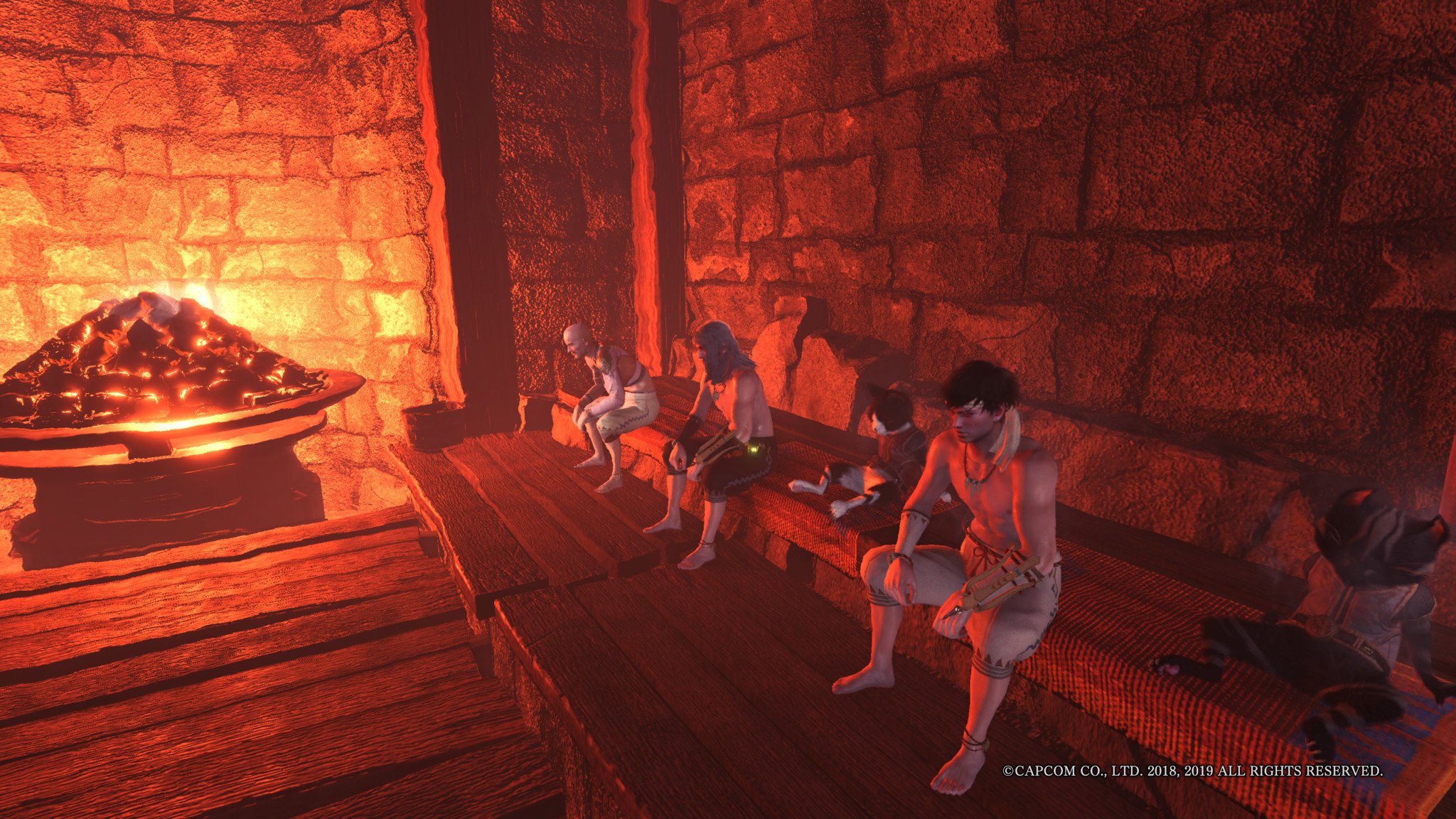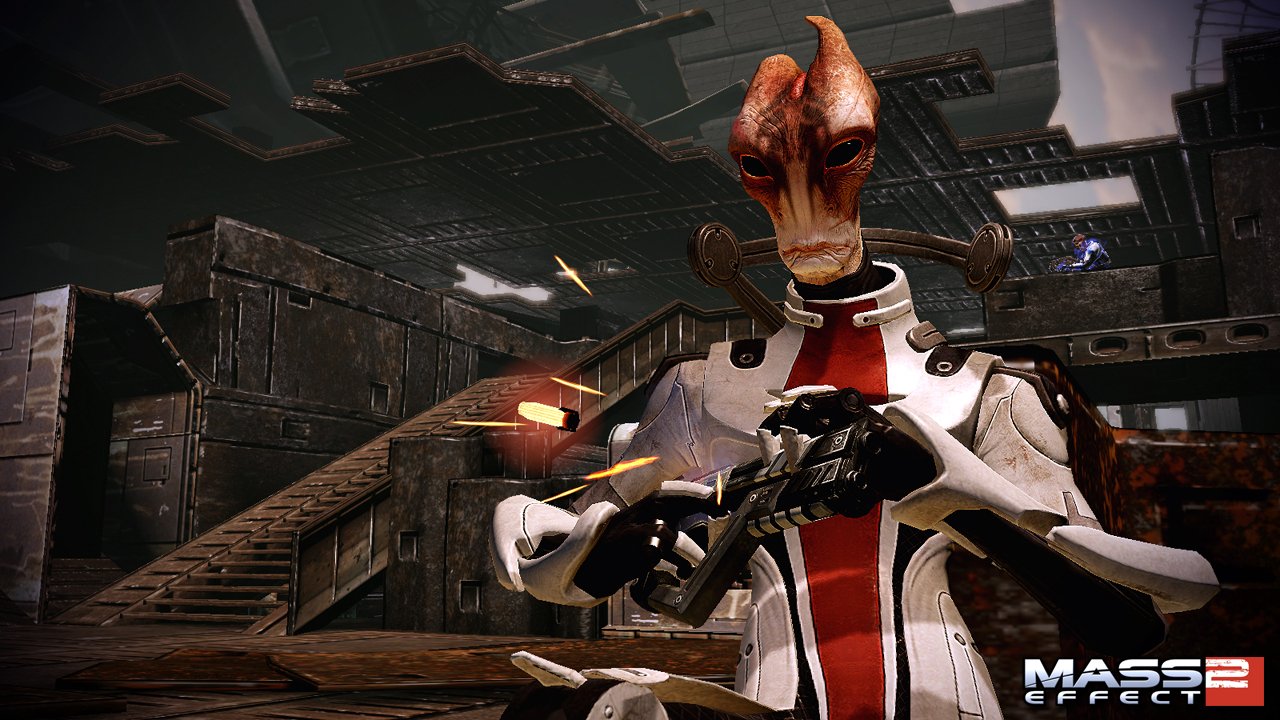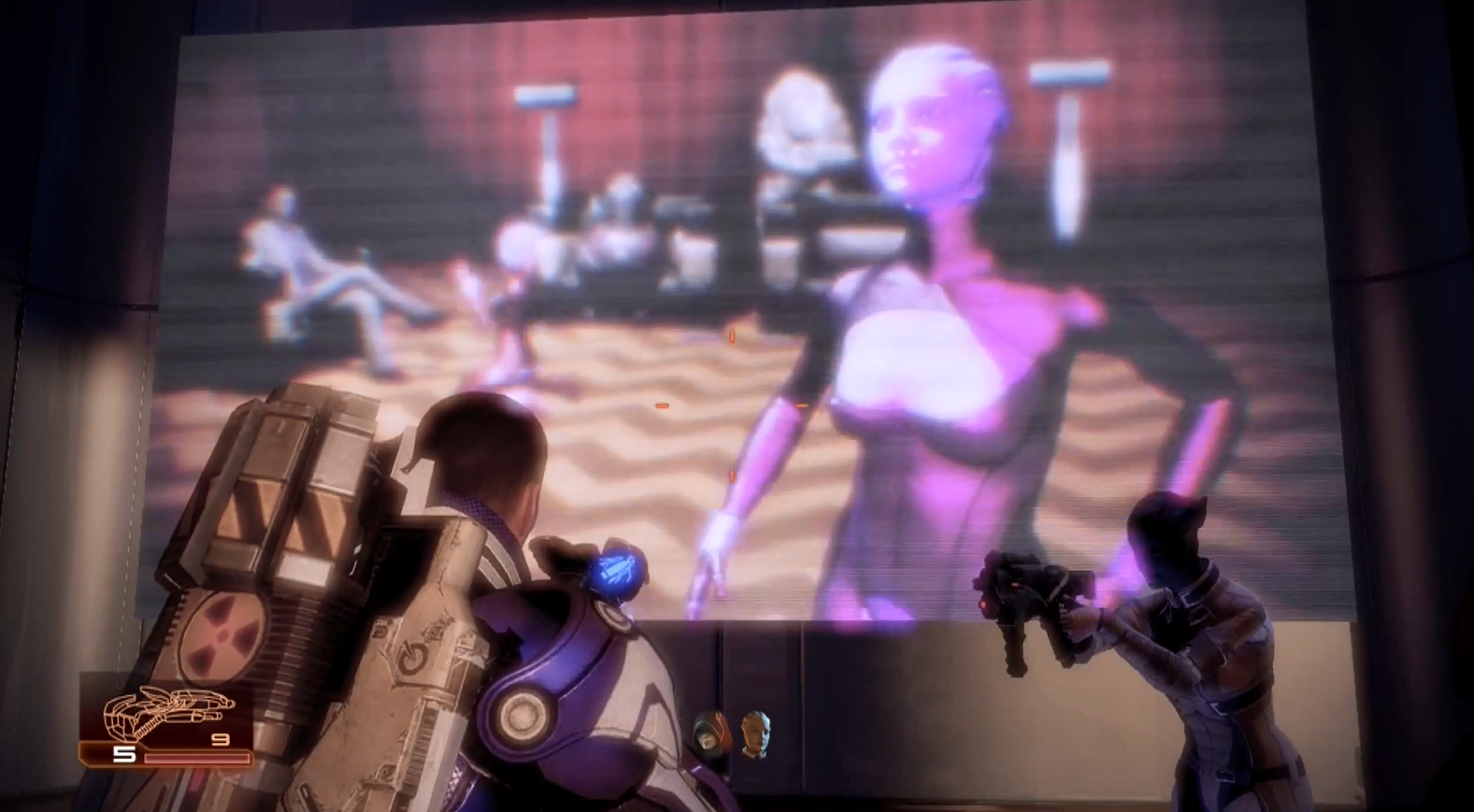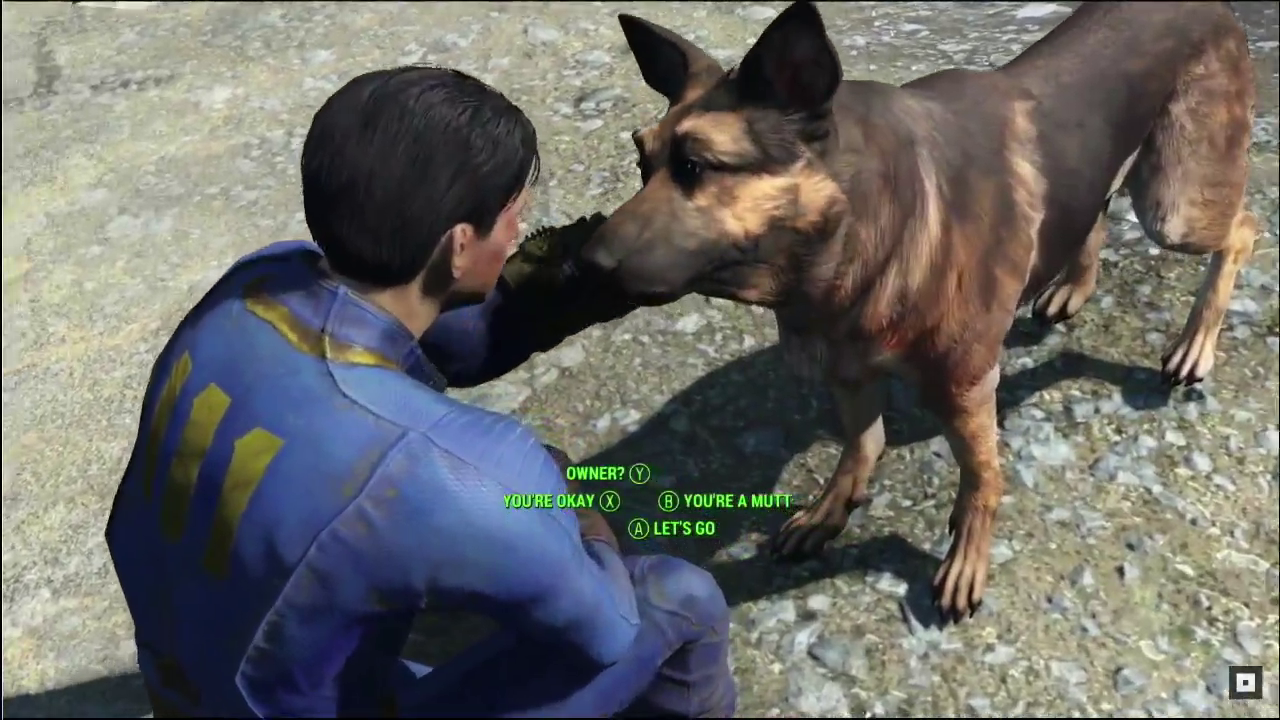An homage to pointless video game details and the importance of choice
A manifesto for the little things.

All the latest news, reviews, and guides for Windows and Xbox diehards.
You are now subscribed
Your newsletter sign-up was successful
Last year, Mass Effect Cinematic Designer John Ebenger revealed that 90 per cent of Mass Effect players chose the Paragon playthrough for Shepard. In Mass Effect, a big part of the game's unique selling point was the depth to which choice played a role in the overall experience. During dialogue scenes, you could choose to play a more hardline "Renegade" approach, or a more goodie-goodie "Paragon" approach.
As a member of the ten percent who plays Shepard as a Renegade, it was with some degree of disappointment that choice had been stripped back so much in Mass Effect: Andromeda, which was unpopular enough to plunge the franchise into a years-long hiatus.
I can't help but wonder if EA sat down with Bioware in some sterile-looking board room, explaining that telemetry data suggested that most people didn't care for, or want, a Renegade playthrough for Mass Effect, and that they should just focus on more simplistic, ultimately cheaper choices instead. I have to wonder if the same telemetry data led to choices being deprioritized in Fallout 4 as well, and other games that have removed flavor in recent years in favor of trends and "data."
Is telemetry data making our games, well, duller?
Flexing creative muscles
Some of my most memorable and impactful video game experiences came from choices the game allowed me to make, and small details that served no purpose beyond delighting those that found them. Nowadays, it feels like it's only indie developers and smaller studios that offer these kinds of human elements, while the big AAA publishers chase sanitized experiences that feel like they came off an assembly line.
I often think about some of the stealth features in Metal Gear Solid. Hideo Kojima games in general are a great example of games that feel intentionally filled with interactive curiosities that are there for the sole purpose of intriguing the player, and aren't core to the experience, or even necessary. The iconic cardboard box from Metal Gear Solid is often an inconsistent tool to actually use to stealth through the game. But it's fun, and hilarious, seeing guards react with confusion to a random box that appeared within their patrol path. The cardboard box is now synonymous with the franchise's wider legend, and it could just as well have not been in the game at all.
Monster Hunter is another great recent example of a game world filled with fun details and smaller systems that give the sandbox a huge degree of interactivity. Monster Hunter World has a fishing system, a cooking system, a creature photography side-quest chain, critter capturing, and monster size measuring, among heaps of other features that you quite honestly never need to even touch to play the game itself. I love that the features are there, even if I use them rarely because it makes the overall package feel more complete, more immersive, and more alive, in ways that other AAA games often aren't.
All the latest news, reviews, and guides for Windows and Xbox diehards.
Gears of War is a franchise I hold near and dear to my heart and remains one of the best Xbox games, but it feels fairly thin on interactivity outside of the core gameplay loop. Gears 5 began to break the mold a bit with its skiff vehicular exploration gameplay, light narrative-oriented side quests, and human hub areas. The fish market sequence from Gears 5 felt like one of the more lived-in and memorable areas in the whole franchise. Knowing Microsoft as I do, I wonder if there were arguments to scrap some of these non-combat segments, using telemetry engagement as evidence.
Engagement telemetry is biased
Telemetry describes user data harvesting to analyze how customers are using your products. Windows itself collects telemetry data on user activities to help Microsoft prioritize the way the OS is built. Services like Steam, Xbox, and others use this type of data to prioritize updates and resources.
I've written about telemetry driving Microsoft's decision making before, watching as features get removed from Xbox Live due to "underuse," leading to a narrower experience. We lost picture-in-picture, Kinect, TV integration, and various other features that made Xbox a richer experience, owing to "low usage." I'm by no means suggesting features should be offered on a charitable basis. Microsoft and other big companies are businesses, and allocating resources where people are is, of course, important. However, when this mentality slips into gaming, I feel like the results can be unintentionally negative for the player, leading to games that feel lifeless and uncreative.
Yup. Something like 92% of Mass Effect players were Paragon.
And we put a lot of work in to the Renegade content too :( https://t.co/lywwx7n4HyYup. Something like 92% of Mass Effect players were Paragon.
And we put a lot of work in to the Renegade content too :( https://t.co/lywwx7n4Hy— John Ebenger (@EbengerJohn) February 19, 2020February 19, 2020
As a game developer, I imagine it's not fun to hear that only ten percent of players chose one of the content paths you'd worked on through the game. But when your game sells millions of copies, that's still hundreds of thousands of people who enjoyed those details. It goes beyond that, though.
Even for those players who chose not to experience the Renegade playthrough, it was still their choice to be a Paragon. The fact that it was a choice elevated the impact of those decisions, making the game more memorable and more evocative. If you were railroaded into playing Paragon by default, then it's ultimately less of a role-playing game. I felt far more connected to my Mass Effect Shephard than I did to my Witcher 3 Geralt of Rivia, because the choices in Mass Effect were so much more divergent.

I never bothered to play through as a Paragon, but I'm glad that the content is there because it gave my decisions a sense of ownership. Is that enough to justify the investment on the developer's side? I'm not sure. But increasingly, I look at games from big publishers and lament how cookie-cutter they've often become. To get a sense of that human touch, increasingly, it seems to be falling on indie developers, who don't have access to this "data" and aren't given strict publisher mandates. Creativity flourishes alongside all of those fun little details and features that seem to contradict telemetry trends.
In some ways, perhaps social media can help eliminate the data bias that arises from using binary engagement or non-engagement data of a feature. The popularity of the Twitter account CanYouPetTheDog really proves the point I'm trying to make. This account catalogs games that allow you to pet the dog in games. As a result, being able to pet animals in games has become almost universal as a given feature of recent games that feature animals and pets.
I'm sure there's telemetry data to suggest most people may not even notice the fact you can pet the dog, or at the very least, perhaps they only use it once or twice. From a telemetry point of view, that might not be a worthwhile feature to add — but how can telemetry measure the way a player feels as a result of engaging with some of these "pointless" details?
More pointless details, please
Aim at a soldier in Metal Gear Solid 2, and they'll dance a bit, and drop their dogtags. Why? Why not.
I'm sympathetic to dev's time and budgetary priorities when it comes to this stuff. But when I think about "publisher meddling" and the developers I've spoken to, oft-frustrated by telemetry used as evidence to contradict artistic choices, I wish more publishers would adopt a more old-fashioned approach, and just trust the artist.
I wish more publishers would adopt a more old-fashioned approach, and just trust the artist.
I think telemetry is useful and important too, of course, but it shouldn't be the be-all and end-all when it comes to making artistic choices. Telemetry based on a binary "did they use this or not" eliminates so much human nuance from the equation, and eliminates the value by virtue of a feature's mere existence.
Xbox backward compatibility is a good example. I don't use it all that often, but Microsoft's efforts in this space make me feel more comfortable about buying games digitally. They make me feel like Xbox as a platform has additional value. It makes me feel like my purchase decisions will carry to future generations. I would hope data scientists at Microsoft and other companies do take some of this stuff into account, but the results often don't seem to suggest that's always the case.
In any case, I want to shoutout every developer that pushed to add fun little mini-games, side objectives, easter eggs, or small video game details. It's in the minutia that we often overlook that make video game worlds feel more alive. It's the choices we didn't engage with that made our choices more impactful.
I am of the ten percent of Mass Effect Renegades out there, and while we may be few, my appreciation to all of the devs that contributed to those memories cannot be measured by a spreadsheet.

Jez Corden is the Executive Editor at Windows Central, focusing primarily on all things Xbox and gaming. Jez is known for breaking exclusive news and analysis as relates to the Microsoft ecosystem — while being powered by tea. Follow on X.com/JezCorden and tune in to the XB2 Podcast, all about, you guessed it, Xbox!



